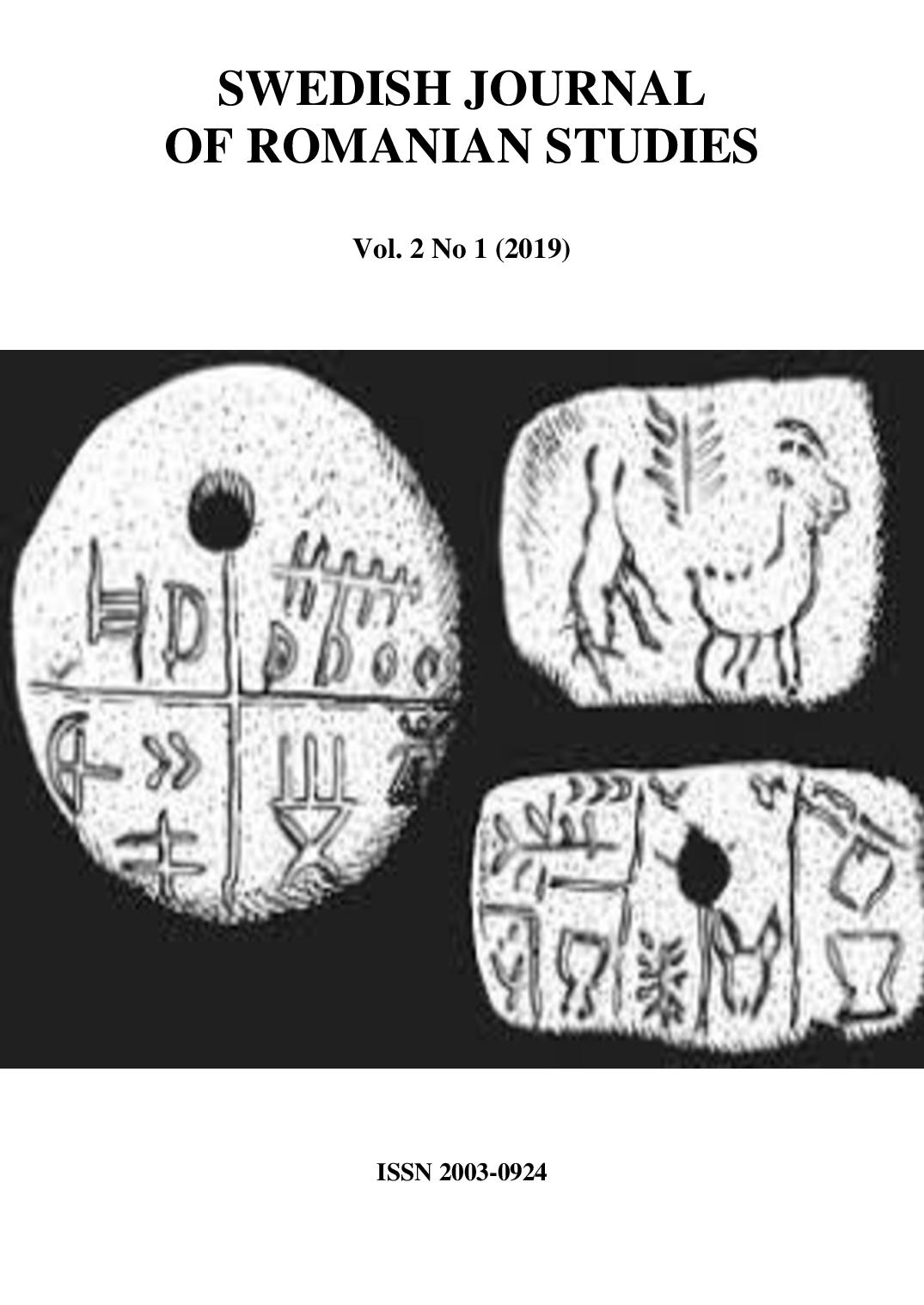A challenge to American pragmatism: staging O’Neill’s Hughie by Alexa Visarion
DOI:
https://doi.org/10.35824/sjrs.v2i1.18814Keywords:
reception, pragmatism, fatalism, performance, Romanian-America cultural connectionsAbstract
“Hughie or the Tale of a Memory” is the working title of the first play that the experienced artist Alexa Visarion has directed for the independent theater (a production released in 2017). The purpose of my paper, which is an investigation of several drama reviews that discuss the play’s first night, is to prove that – despite difficulties with cultural reception and public taste (given a text by O’Neill that is 80 years old, as well as the director’s first time with an informal theater production) - this performance was a succesful attempt at communicating and debating the conflicted values of American pragmatism and equally a crowning of the Romanian director’s effort to stage O’Neill’s plays in our country. Relying on insights from the American doctrine of Pragmatism, I will try to show how O’Neill’s text challenges philosophical premises that are inbred in the American status-quo, thereby making his plays “anti-materialistic” by promoting a fatalistic approach to existence.
References
“Alexa Visarion – 70” (2017, September). Contemporanul: 20-25.
Alexa, V. (2017) Împotriva uitării/ Against Oblivion. Bucureşti: Institutul Cultural Român.
Bogzaru, O. (2017, 27 June). “Hughie, personajul absent care a oprit timpul./ Hughie, the absent character who stopped time.” Yorik.ro, 418, retrieved January 2018 from https://yorick.ro/hughie-personajul-absent-care-a-oprit-timpul/
Bulz, A.C. (2018). Transatlantic Connections: A Critical Study of Eugene O’Neill’s Reception in Romania. Beau Bassin: Lambert Academic Publishing.
Epingeac, A. (2017, 11 July). “Eseu despre ratare./ Essay on failure” Yorik.ro, 368, Retrieved January 2018, from https://yorick.ro/hughie-eseu-despre-ratare/
James, W. (2004). The Meaning of Truth. Retrieved September 2018 from http://www.gutenberg.org/files/5117/5117-h/5117-h.htm
Lucaciu, I. (2017, 22 August). “Demonstrație a rostului detaliului teatral./Demonstration of the purpose of theatrical detail.” Retrieved January 2018, from http://ileanalucaciu.blogspot.com/2017/08/hughie-unteatru.html
O’Neill, E. (1988). Complete Plays (1932-1943). New York: Library of America, 831-851.
Peirce, C.S. (1878).“Illustrations of the Logic of Science.” Retrieved September 2018 from https://en.wikisource.org/wiki/Popular_Science_Monthly/Volume_12/January_1878/Illustrations_of_the_Logic_of_Science_II
Trăncuţă, D. (2017, 27 May). “Hughie şi moartea iluziilor./ Hughie and the death of illusions.” Ziarul Metropolis, Retrieved January 2018 from http://www.ziarulmetropolis.ro/hughie-si-moartea-iluziilor/
“Teatrul se ocupă cu ceea ce nu ştim şi căutăm. / The theater deals with what we don’t know and we are looking for.” Retrieved September 2018 from https://radioromaniacultural.ro/teatrul-se-ocupa-cu-ceea-ce-nu-stim-si-cautam-alexa-visarion-la-unteatru/
Downloads
Published
How to Cite
Issue
Section
License
Copyright (c) 2019 Adriana Carolina Bulz

This work is licensed under a Creative Commons Attribution-NonCommercial 4.0 International License.
Authors who publish with this journal agree to the following terms:
a. Authors retain copyright and grant the journal right of first publication with the work simultaneously licensed under a Creative Commons Attribution-NonCommercial 4.0 International License that allows others to share the work with an acknowledgement of the work's authorship and initial publication in this journal.
b. Authors are able to enter into separate, additional contractual arrangements for the non-exclusive distribution of the journal's published version of the work (e.g., post it to an institutional repository or publish it in a book), with an acknowledgement of its initial publication in this journal.
c. Authors are permitted and encouraged to post their work online (e.g., in institutional repositories or on their website) prior to and during the submission process, as it can lead to productive exchanges, as well as earlier and greater citation of published work (See The Effect of Open Access).

